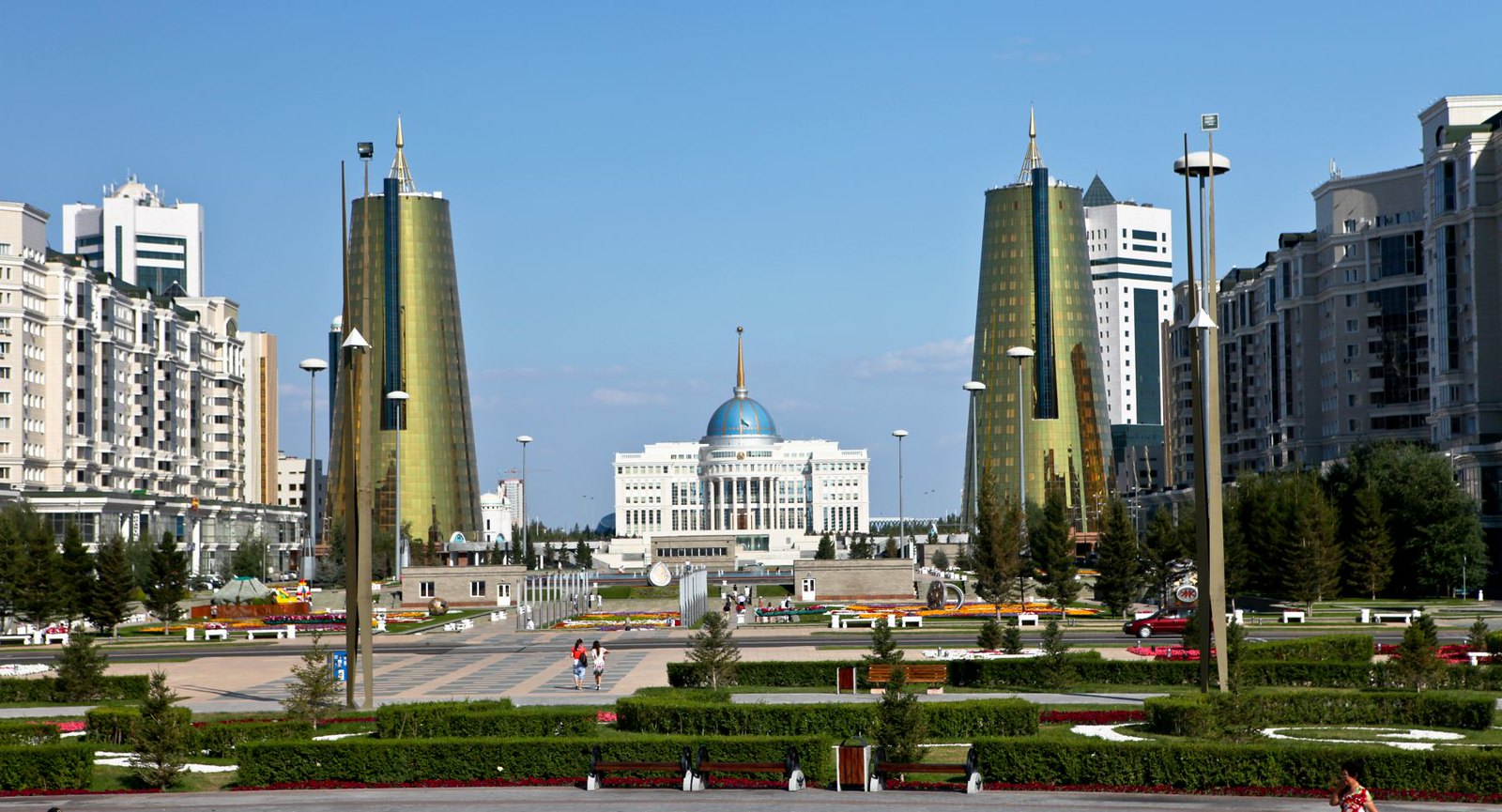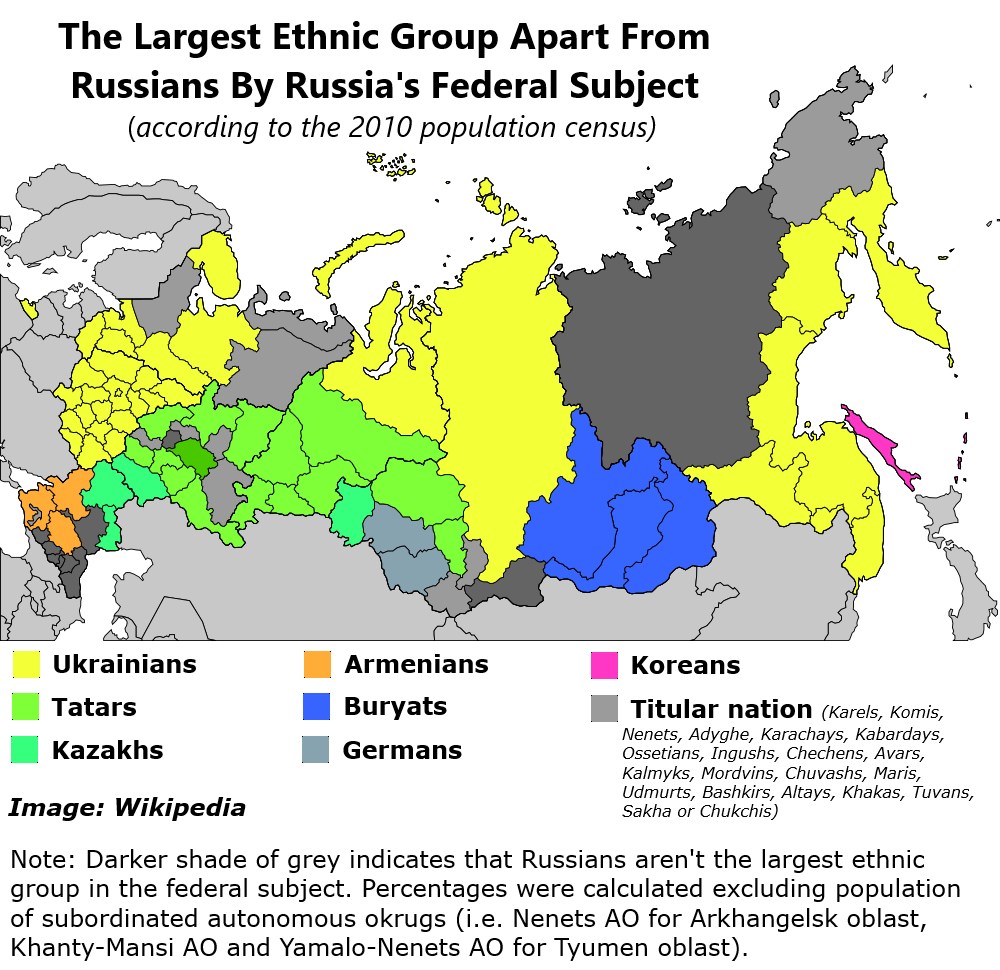The Svobodnaya pressa commentator surveys the views of some and provides especially instructive reaction by Yevgeny Valyayev of the Public Diplomacy Foundation for the Development of Civil Society and by Aynur Kurmanov, the head of the Socialist Movement in Kazakhstan.
According to Valyayev, “over the course of many years, it seemed that there practically didn’t exist any disagreements between Russia and Kazakhstan,”
a sharp contrast with the situation regarding Georgia and Ukraine and even more friendly Belarus and Armenia. For Moscow, Kazakhstan by comparison looked like “a safe harbor.”
That led many in the Russian capital to neglect the ways in which Kazakhs were replacing Russian and Soviet toponyms, pushing out the Russian language, and promoting anti-Russian versions of history, he says. As a result, when recent events have made it impossible to ignore they have reacted with extreme concern.
[boxright]
[/boxright]
Unfortunately, he says,
“Kazakh nationalism long ago became just as mainstream a point of view as Ukrainian or Belarusian nationalism which unites them via an active struggle with the imperial past, in which Russia and Russians become the chief targets for attack,” the Moscow observer says.
No one should forget that in northern Kazakhstan, there are a large number of ethnic Russians and they are hardly indifferent to the shift in attitudes in Kazakhstan. Many have left but many who haven’t don’t want to continue to be forced into the status of “second class citizens” (the old good universal "they are oppressing Russians" narrative of the Russian propaganda, - Ed).
The Kazakh “language patrols” which seek to force Russians to speak Kazakh and Kazakhs not to speak Russian have highlighted this problem, and the failure of the Kazakhstan authorities to crack down hard on them shows that in Nur-Sultan there are many who aren’t against the idea that “Russians should leave Kazakhstan forever.”
One young Kazakh director, Kuianysh Beysekov, is promoting the idea that Kazakhstan is “a besieged fortress,” beset on all sides by Russia, China, and the US. Such an idea, Valyayev says without irony given the Kremlin’s use of the term, “gives people simple answers to complicated questions and frees them from responsibility” by blaming others for their mistakes.
Russia must respond, he continues. It must not only use its economic leverage, but it must promote the idea that all countries in the Eurasian Economic Community, including Kazakhstan, insert in their constitutions provisions making Russian a state language and its study obligatory in all their schools (forced Russification has been one of the staples of the Russian then Soviet empire for many years, - Ed.). Only those countries that do so should be part of the EEC, according to him.
Kurmanov says that Russians and Moscow have good reasons to be worried about the situation in Kazakhstan. Recent pogroms against Dungans and other minorities show that it is very easy to imagine that Kazakhs under certain conditions will eventually attack ethnic Russians as well.
He believes that all too many in Moscow are calming themselves about Kazakhstan with the soothing words of the current Kazakhstan president. Sometimes but far from always, he says the right things. But he is not in real charge. His predecessor, Nursultan Nazarbayev, is and he and others in Kazakhstan are increasingly prepared to use anti-Russian themes for their own purposes.
They are promoting nationalism both to defend their own power and also to cover the ways in which they are shifting Kazakhstan away from Russia and toward the West, he says. But this is a dangerous game, Kurmanov says, one that may lead to “border clashes with Uzbekistan and Kyrgyzstan” and Russian-Kazakh clashes within the country.
All this, the Kazakh party official says, could eventually lead “to the disintegration of the country and civil war” much like what is going on in Ukraine now (where the "disintegration of the country" and the "civil" war exist exclusively in the Russian propaganda, - Ed.), a situation Russia cannot avoid being concerned about and even involved in.
Further reading:
- Moscow reacts to Kazakhstan and Kyrgyzstan switching from Cyrillic with hysterics
- “Russophobia” as a Russian propaganda tool
- Kazakhstan president lashes out at Russian suggestions Moscow ‘gave’ his republic land
- More than half of all non-Kazakhs in Kazakhstan now speak Kazakh, Astana says
- New film shows Kazakhs they suffered a Holodomor too, infuriating Moscow
- Kazakhstan’s secret services harass activists in Ukraine, Russian political refugee says





